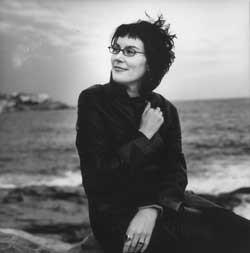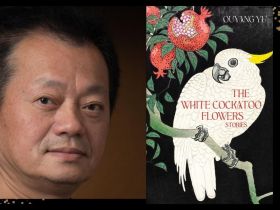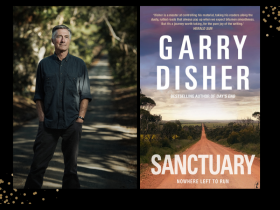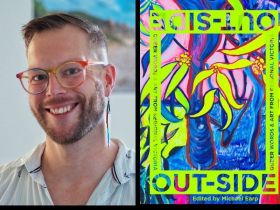BOOK REVIEW: ‘Shafana and Aunt Sarrinah by Alana Valentine. Published by Currency Press.
Islam has many facets. The term functions to indicate a religion and cultural institution but the word itself often triggers a chain reaction of spasmic responses that range from disbelief and disgust to fascination and curiosity. But stories are slowly being unveiled.
Literally. And Alana Valentine’s ‘Shafana and Aunt Sarrinah, published by Currency Press, is one step towards offering a better glimpse of how Muslims, women in particular, explore their own identities in relation to their faith and life here in Australia.
The play revolves around a conversation between an Aunt Sarrinah and her niece Shafana, the latter who has decided to adopt the headscarf known as the hijab (quick clarification the hijab is not the same as the burkha. The latter is a loose garment that covers the entire body including a veil that only has an opening for the eyes while the former normally covers a woman’s hair and neck and depending upon personal preference can also include the veil).The narrative traces the conversation between aunt and niece as the elder woman becomes more expansive of the difficulties she faced upon her immigration as an educated Afghani woman to Australia and tries to warn her young and enthusiastic niece of the realities that face a young woman who dares to show her faith publicly. ‘Ask me! Accuse me! Is a refrain heard throughout the play and has an unsettling ring to it that echoes long after the drama on stage has ended.
Although the play is a fictionalized drama it is based to a large extent on real conversations held between the playwright and Makiz Ansari, current Director and Education Co-ordinator at the Islamic Sciences and research Academy of Australia. The vivid examples, domestic settings and easy banter that only occur in the most intimate of family relationships is effectively captured and is testimony to Valentine’s ability to produce naturalistic language that flows easily within intimate spaces.
The extended scientific metaphor that is introduced at the beginning and re-visited towards the end is functional but not fully developed and somewhat hampers the largely realistic setting that the rest of the play inhabits. Nevertheless, as a whole the play is an excursion into one of the most compelling decisions a young Muslim woman can make and is an important and necessary addition to the canon of drama that is emerging about multicultural Australia.
Many Australians today have a cultural background that is not of Anglo/European descent yet while celebrating their traditions and customs they are simultaneously proud to declare themselves Australian. Yet why then, especially with so much support for ethnic diversity and multiculturalism do individuals who display difference continue to be other-ed?
As Shafana asserts to her aunt ‘I am an Australian citizen. I should not be grateful to be tolerated’. But as the play highlights, if one is a Muslim woman and declares her faith by wearing the hijab, one should be grateful not to be harassed on public transport, one should be grateful to be offered a job at a check out supermarket, one should be grateful to be spoken to as if English were their mother tongue. That is the reality of living as a Muslim woman in Australia today.
As the play’s subtitle hints there is a revolution brewing, it is called the soft revolution, and it will most certainly challenge and change the views people have towards individuals of ‘Middle Eastern Appearance’. One only has to look at the wave of antagonism that greeted Qatar being chosen as the recipient of the 2022 Football World Cup to consider how the verbal bludgeoning disseminated in the newspapers, social networking sites, blogs, opinions and throughout the media is, by a very a large majority, negative, discriminatory and reduces the idealistic ‘fair go’ notion to a piece of rhetorical rubble.
This is the reality of the world that Aunt Sarrinah and Shafana live in. This is the reality of the Australia that we all live in today. This is drama that is unfolding right now.
Published by Currency Press.





